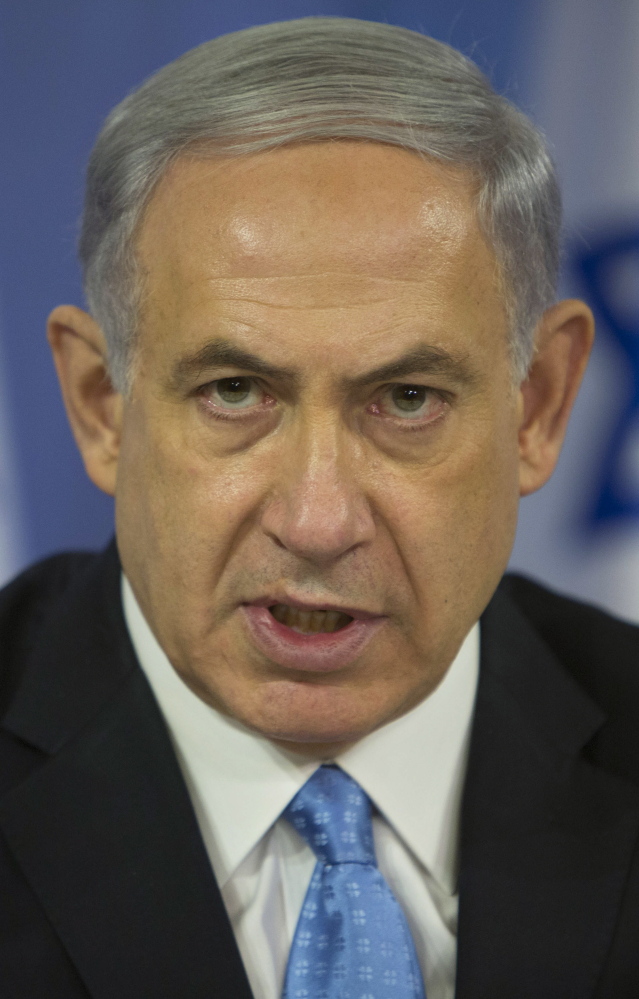TEL AVIV — In 1996, a canny and polished politician named Benjamin Netanyahu stormed onto the electoral scene and became Israel’s youngest prime minister. An articulate and commanding presence, fluent in English, twice wounded in combat, he became a political force of nature, never far from the spotlight – or the minds of his rivals – even during the few years when he was out of power.
Now, however, voters finally may be turning away from the 65-year-old leader. Trailing in the polls as he heads into Tuesday’s general elections, the prime minister has acknowledged he is in danger of being dislodged, though the famously mercurial Israeli electorate may yet make a last-minute swerve, and the vagaries of Israel’s complicated political system are likely to cloud the outcome.
Candidates crisscrossed the country Sunday, making impassioned eleventh-hour appeals in what has turned into one of the hardest-fought campaigns in modern Israeli history. For Netanyahu’s main competition, a center-left party known as the Zionist Union, the message was simple: It’s time for the prime minister to go.
“The public has had enough of Netanyahu,” said Isaac Herzog, who morphed into the driven candidate now seen as the likeliest contender to lead the country if Netanyahu’s Likud Party falls short. “The public wants change.”
Polls appeared to bear him out. In the last surveys released before a “poll blackout” took effect at the end of last week, nearly three-quarters of the respondents said the country needed a change of course.
But if the country’s longest-serving prime minister since founding father David Ben-Gurion is on his way out, he is definitely not going without a fight. In a series of sharply combative interviews, Netanyahu depicted his rivals – Herzog and running mate Tzipi Livni, a former foreign minister and peace negotiator – as weak and naive, asserting they would make extraordinary concessions to Palestinians and fail to safeguard Israel against a nuclear Iran.
“Buji and Tzipi will run straight to Ramallah,” the prime minister said in an interview Sunday on Israel Radio, calling Herzog by his widely used nickname as he referred to the West Bank city that is the Palestinian Authority’s home base. “They will capitulate immediately. … They cannot withstand international pressure, and don’t want to.”
With the campaign’s end in sight, the candidates reached for emotional touchstones. Herzog on Sunday visited the Western Wall, Judaism’s holiest prayer site, while Netanyahu made a rare personal campaign appearance before a right-wing rally in Tel Aviv, where he railed against what he called outside pressure to unseat him.
“We don’t back down, even under fire,” he said, addressing the crowd from behind a screen of bulletproof glass in Rabin Square, named for assassinated Prime Minister Yitzhak Rabin. “We offer truth to the whole world, as I did before Congress, in Washington,” referring to his controversial speech this month in the U.S. Capitol.
Send questions/comments to the editors.



Success. Please wait for the page to reload. If the page does not reload within 5 seconds, please refresh the page.
Enter your email and password to access comments.
Hi, to comment on stories you must . This profile is in addition to your subscription and website login.
Already have a commenting profile? .
Invalid username/password.
Please check your email to confirm and complete your registration.
Only subscribers are eligible to post comments. Please subscribe or login first for digital access. Here’s why.
Use the form below to reset your password. When you've submitted your account email, we will send an email with a reset code.